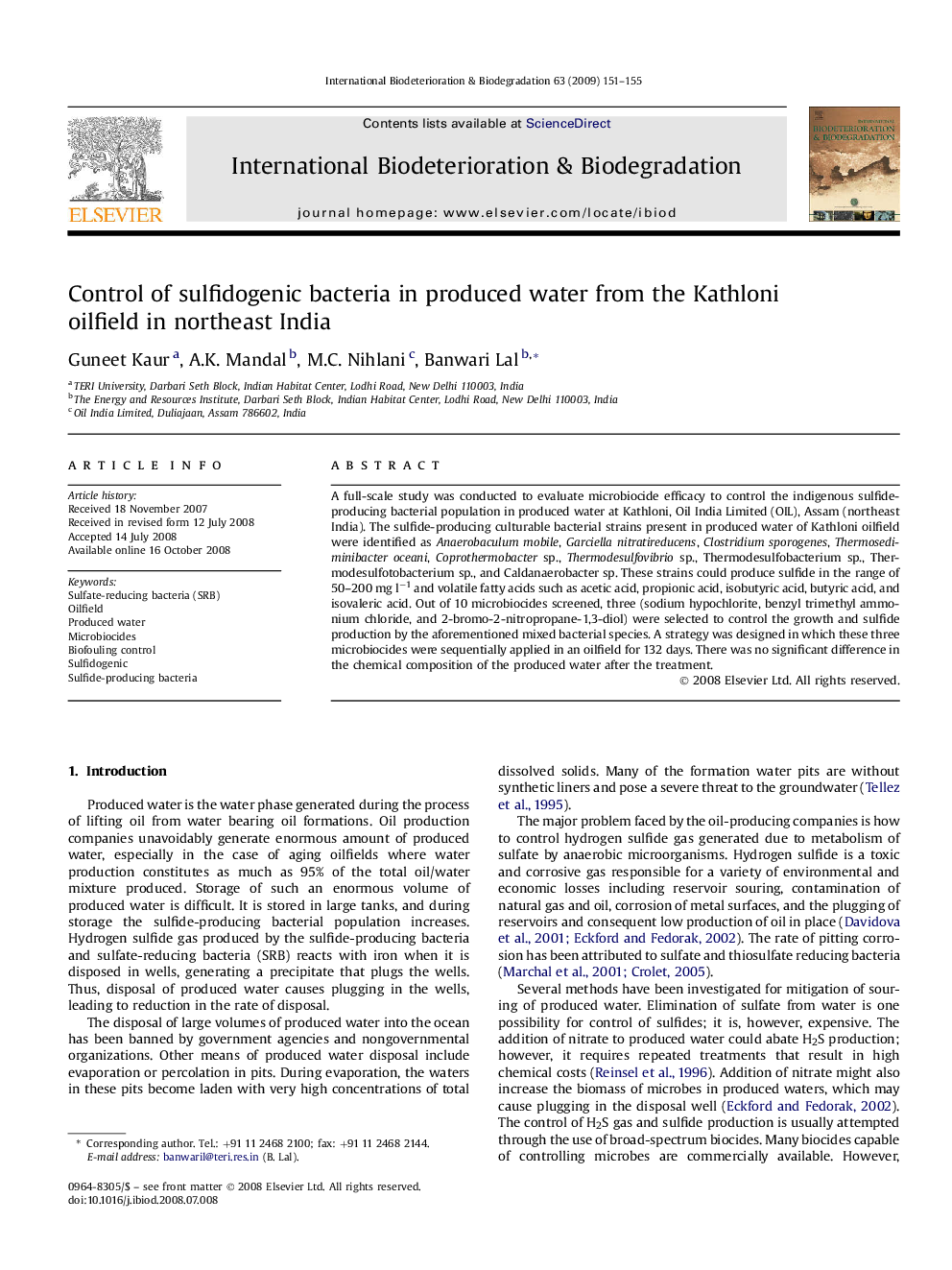| Article ID | Journal | Published Year | Pages | File Type |
|---|---|---|---|---|
| 4365432 | International Biodeterioration & Biodegradation | 2009 | 5 Pages |
Abstract
A full-scale study was conducted to evaluate microbiocide efficacy to control the indigenous sulfide-producing bacterial population in produced water at Kathloni, Oil India Limited (OIL), Assam (northeast India). The sulfide-producing culturable bacterial strains present in produced water of Kathloni oilfield were identified as Anaerobaculum mobile, Garciella nitratireducens, Clostridium sporogenes, Thermosediminibacter oceani, Coprothermobacter sp., Thermodesulfovibrio sp., Thermodesulfobacterium sp., Thermodesulfotobacterium sp., and Caldanaerobacter sp. These strains could produce sulfide in the range of 50-200 mg lâ1 and volatile fatty acids such as acetic acid, propionic acid, isobutyric acid, butyric acid, and isovaleric acid. Out of 10 microbiocides screened, three (sodium hypochlorite, benzyl trimethyl ammonium chloride, and 2-bromo-2-nitropropane-1,3-diol) were selected to control the growth and sulfide production by the aforementioned mixed bacterial species. A strategy was designed in which these three microbiocides were sequentially applied in an oilfield for 132 days. There was no significant difference in the chemical composition of the produced water after the treatment.
Related Topics
Life Sciences
Environmental Science
Environmental Science (General)
Authors
Guneet Kaur, A.K. Mandal, M.C. Nihlani, Banwari Lal,
